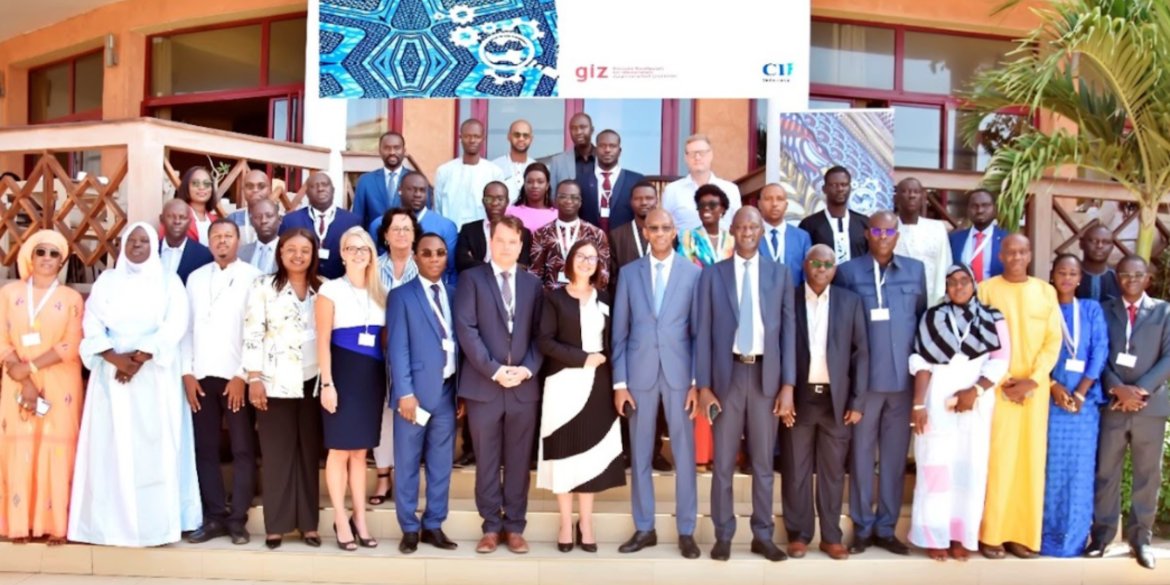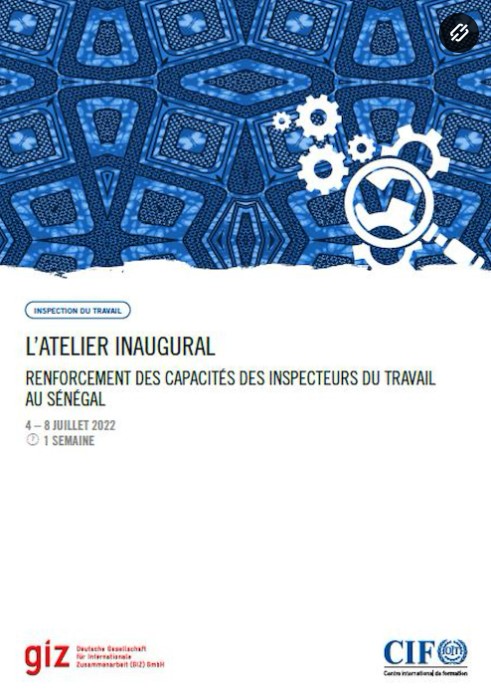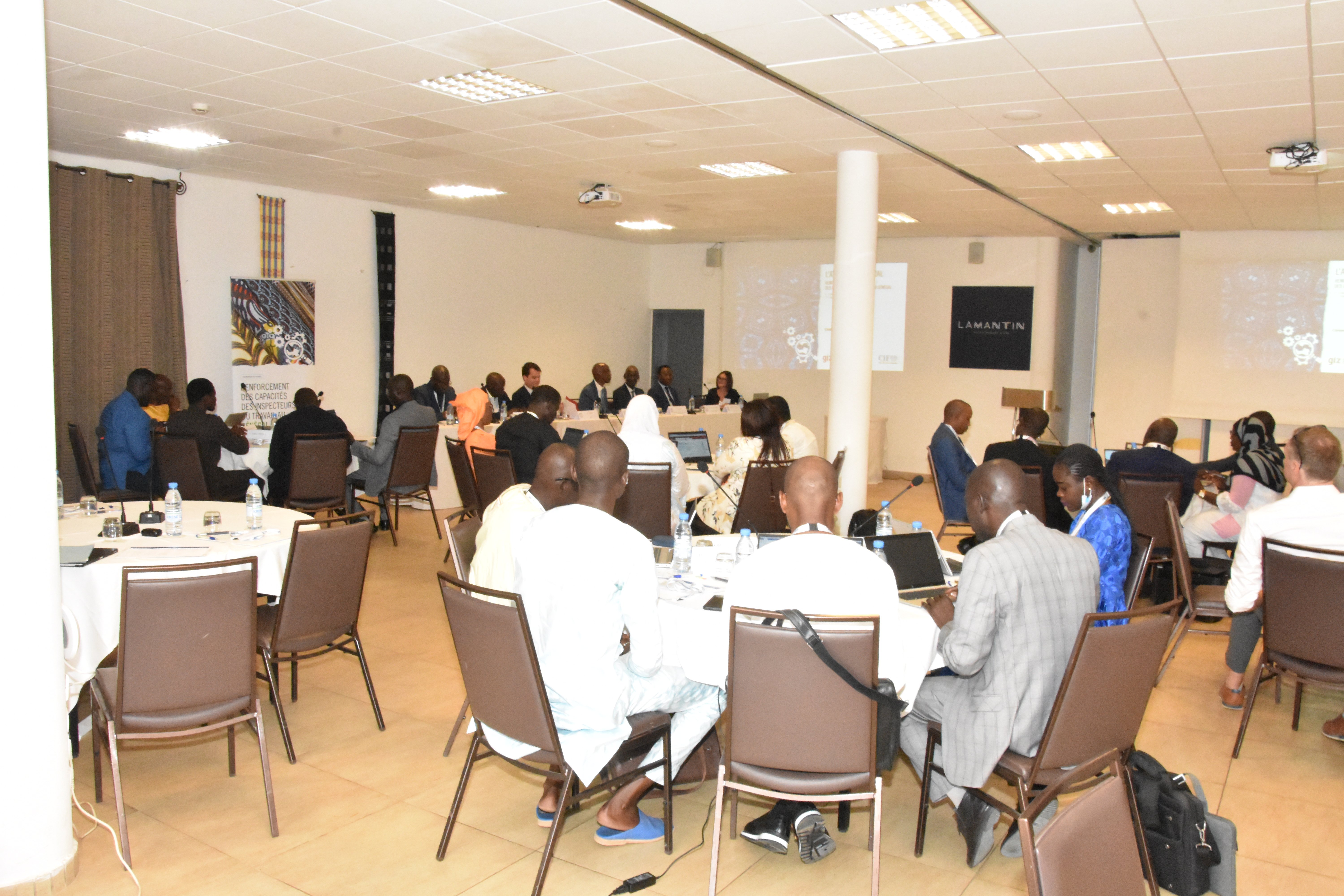Capacity Building for Labour Inspectors in Senegal
Labour inspection
Capacity Building for Labour Inspectors in Senegal

Photo © Olena Vazhynska – ITCILO
By aligning the efforts of different stakeholders and drawing on the ILO’s long-standing expertise in providing technical assistance to its member States, the International Training Centre of the ILO (ITCILO), the Organization’s training arm, is committed to consolidating and integrating the capacity-building initiative for labour inspectors in Senegal.
This initiative is being carried out with the support and close collaboration of the Ministry of Labour, Social Dialogue and Relations with Labour Institutions, the Bureau of Organization and Methods (BOM), the National School of Administration (ENA) of Senegal, the International Labour Office in Geneva (ILO-Geneva), the Decent Work Technical Support Team and ILO Country Office in Dakar (DWT/CO-ILO-Dakar), and the German Agency for International Cooperation (GIZ/Deutsche Gesellschaft für Internationale Zusammenarbeit).
Series of Activities
Within the framework of this initiative, a series of activities has been planned. The first step consisted of a thorough training needs analysis, validated at the inaugural workshop held in July 2022. The technical capacity-building activities are currently under preparation and will take place shortly.
1. Training Needs Analysis
Conducted at the beginning of 2022, this analysis was based on several components designed to cross-check information and gather a wide range of contributions:
- A documentary review of relevant materials, existing curricula, previous needs assessments, and reports from training institutions, international organizations, or technical cooperation projects;
- Individual interviews with key stakeholders at both central and regional levels, including direct and indirect target groups;
- An online survey targeting labour and social security inspectors.
The final report was presented and validated during the inaugural workshop held from 4 to 8 July 2022 in Saly, Senegal.
2. Development of Training Programmes
A total of eight training programmes will be developed to address the identified priorities. These programmes will build on ILO-developed content and modules, covering, among others:
- Modern administrative management techniques (e.g., personnel management, professional ethics);
- Support for change management;
- Occupational safety and health standards.
The inaugural workshop, held in Saly in July 2022, provided participants with the opportunity to:

- Exchange on the roles, responsibilities, challenges, and gaps faced by labour inspectors in their work;
- Familiarize themselves with the joint initiative and reflect on their role within it;
- Validate the results of the training needs assessment and identify follow-up actions;
- Review methodologies and practices for initial and continuous training of labour inspectors;
- Strengthen their knowledge of international labour standards in the area of labour inspection;
- Learn more about the advantages of the ILO’s activities and those of the ITCILO in the region and worldwide in terms of methodologies and programmes for strengthening labour inspectors’ capacities;
- Explore the ILO’s strategic compliance model and best practices in its application.
The main stakeholders – the Ministry of Labour, BOM, ENA, ILO-Geneva, DWT/CO-ILO-Dakar, and GIZ – participated in the workshop and expressed their support. Exchanges also took place with colleagues from Côte d’Ivoire and Madagascar, as well as with ILO specialists from the region and headquarters. Participants particularly appreciated the participatory approach, discussions, and exchange of experiences.
Key outcomes of the inaugural workshop included:
- Validation of the results of the training needs assessment;
- Commitment from the main stakeholders to support the next steps through the creation of a Steering Committee;
- Dedication from the labour inspection services, within which a Task Force will be created;
- Announcement of upcoming training activities.

3. Training of Trainers
The cascade model adopted is designed to promote knowledge transfer and sustainability by ensuring national ownership of learning programmes.
This will include:
- Designing a strategy and training framework for national labour inspections;
- Developing their own training systems and packages;
- Implementing Training of Trainers (ToT) and/or Training of Mentors (ToM) programmes to ensure the continuous training of labour inspectors is sustainably integrated into Senegal’s institutional landscape.

The establishment of a Task Force composed of focal points for training activities within the labour inspection services is envisaged as a valuable contribution to the sustainability and longevity of the initiative.
The initiative has begun on a positive note. Stakeholders and beneficiaries are engaged and motivated, and the foundations of a sustainable training system have been laid. We look forward to continuing the implementation of this programme and making it a lasting reality!